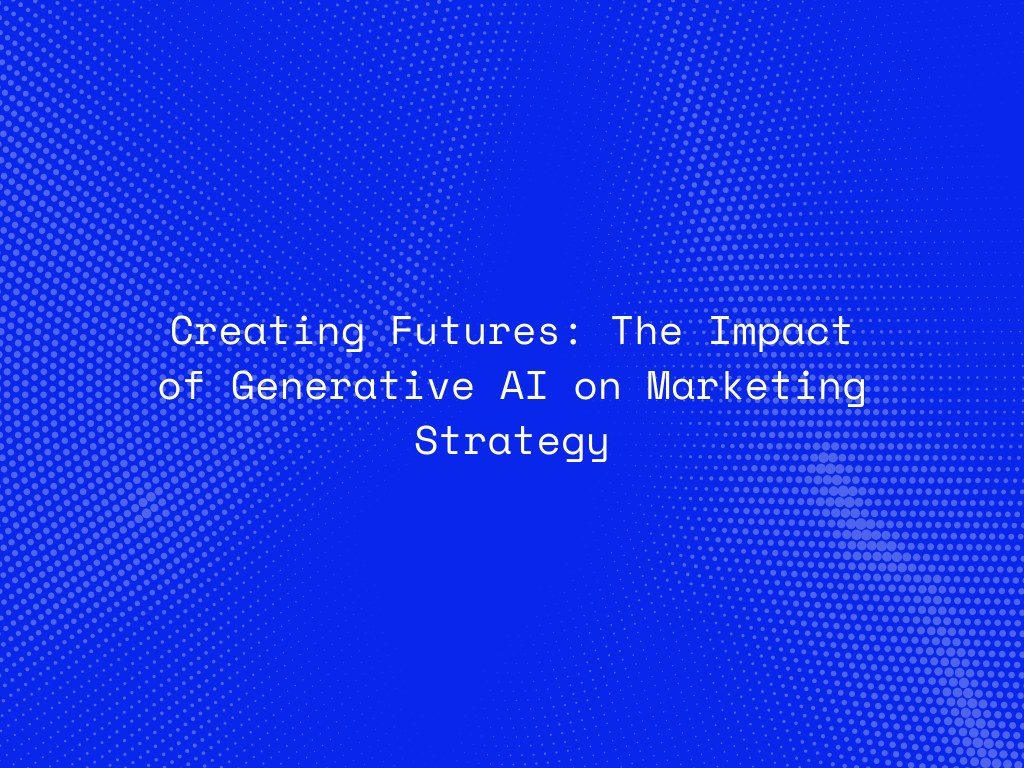Staying ahead of the curve is crucial for organizations looking to stay competitive in today’s quickly changing digital market. The field of marketing strategy is seeing a revolution thanks to generative artificial intelligence (AI), which presents hitherto unseen chances for creativity, customization, and innovation. We’ll look at how generative AI is changing marketing strategy and the future of brand-consumer connections in this blog article.
Unlocking Creativity:
Through the large-scale production of unique and varied content, generative AI enables marketers to unleash unprecedented creative potential. Generative AI allows marketers to explore many options and try out many creative concepts, from producing visually beautiful images and designs to writing captivating ad text and product descriptions. In a congested digital market, this inventiveness not only draws attention but also promotes brand uniqueness and engagement.
Personalization at Scale:
A key component of successful marketing today is personalization, as customers demand experiences that are catered to their own tastes and passions. Generative AI analyzes massive volumes of customer data and creates unique messaging for each user, allowing marketers to deliver tailored content and recommendations at scale. This degree of customization promotes long-term client loyalty, increases engagement, and increases conversions.
Optimizing Campaign Performance:
Real-time campaign performance data analysis is possible with generative AI algorithms, which can also offer useful insights for improving marketing tactics. Generative AI assists marketers in fine-tuning their targeting, messaging, and creative assets to optimize the effectiveness of their campaigns by seeing trends, patterns, and opportunities. With the help of this data-driven strategy, marketers can make wise decisions and improve the outcomes of their campaigns.
Predicting Consumer Trends:
Generative AI algorithms can analyze vast amounts of data from various sources, including social media, search trends, and consumer behavior, to predict emerging trends and preferences. By leveraging predictive analytics, marketers can anticipate shifts in consumer behavior and tailor their strategies accordingly. This proactive approach enables brands to stay ahead of the competition and capitalize on new opportunities in the market.
Enhancing Customer Experience:
Generative AI plays a crucial role in enhancing the customer experience by providing personalized interactions and seamless interactions across touchpoints. Chatbots powered by generative AI can engage with customers in natural language, answer questions, and provide assistance in real-time. Virtual assistants can offer personalized product recommendations and support throughout the customer journey, creating frictionless experiences that delight customers and drive loyalty.
Ethical Considerations:
As with any technology, the use of generative AI in marketing raises important ethical considerations, including issues such as data privacy, transparency, and algorithmic bias. Marketers must ensure that they use generative AI responsibly and ethically, respecting user privacy and maintaining transparency in their use of AI-generated content. Additionally, marketers should be vigilant in addressing biases and ensuring that generative AI models produce fair and equitable outcomes for all users.
Conclusion:
Generative AI is revolutionizing marketing strategy by empowering marketers to unlock creativity, personalize experiences, optimize performance, and predict consumer trends. By harnessing the power of generative AI, businesses can create futures that are shaped by innovation, engagement, and long-term customer relationships. However, it is essential for marketers to approach generative AI with caution, considering ethical considerations and ensuring responsible and ethical use of this transformative technology.




